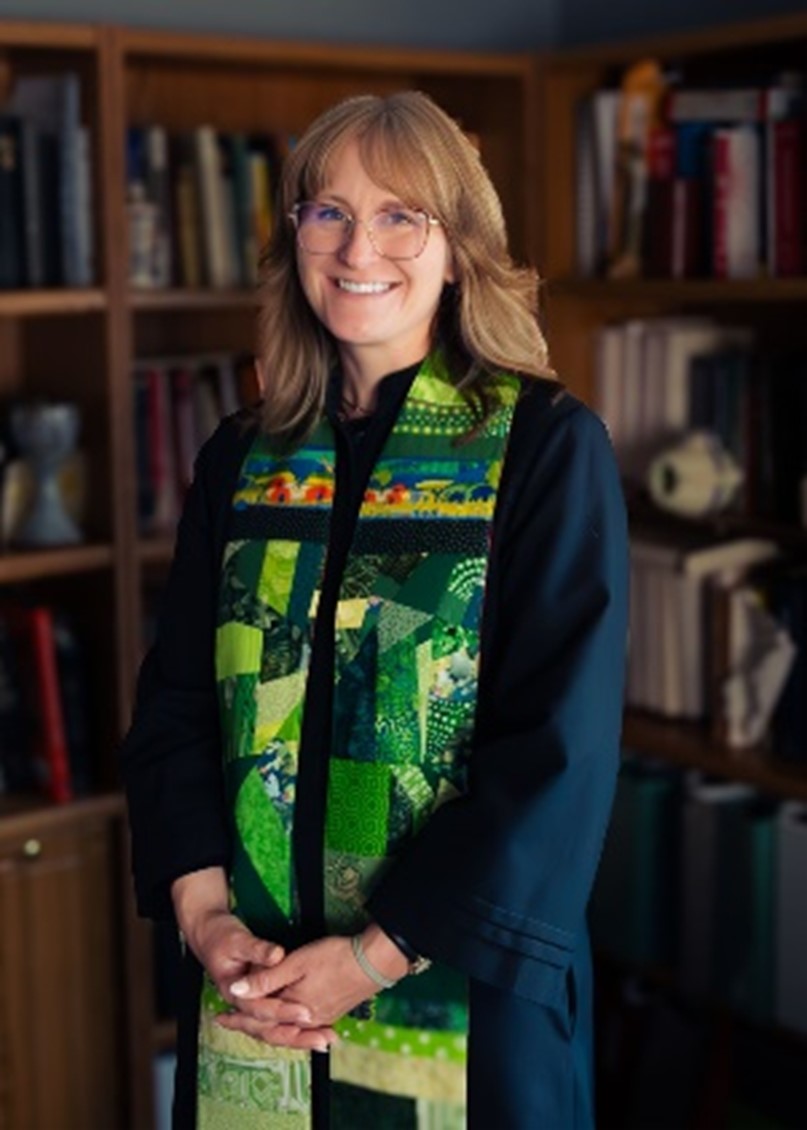Lessons Learned During and After Sabbatical
Rev. Ashley Nolte, Pastor at Pilgrim United Church of Christ in Grafton, WI, discusses her recent sabbatical and the importance for pastors to practice self-care.
I’d never taken a sabbatical, so I had no idea what to expect. I was really looking forward to having weekends, since I’d never really had a weekend before. I wanted to get up on a Sunday morning, drink coffee, and just sit at my desk. And I did that. I got to rest, and I had nights at home, which I was looking forward to as well. I also focused on my degree; I was working almost full-time at the outpatient clinic where I was completing my field placements.
I was lucky that my congregation intentionally saved for my sabbatical starting on my first day there. This meant paying me full-time with benefits, as well as my interim (Sylvie Bowen-Bailey, a student at Eden Theological Seminary). My sabbatical consequently did not negatively impact the financial well-being of my congregation. It was a great experience for both Pastor Sylvie and the congregation, and I’m so glad I got to share my amazing community with someone else for a while, even though the congregation missed me.

But in the last two weeks of my sabbatical, I realized how scared I was to come back. The world I saw reflected in the news was terrifying. I’d been away from my congregation for three months! The divisiveness that occurred over the summer with the political conventions made me nervous about what to say and how to minister. By nature, I’m not a political preacher. But it only took an hour and a half for people to stop in and tell me they missed me; my nerves quickly subsided when I was back in my community.
Going into my sabbatical, I had an assumption that I didn’t need to be part of a community to fill my spiritual cup. I went camping, I went to Glacier National Park, I spent a week at Boundary Waters. I was outside a lot, but it wasn’t enough. I found that it’s that sense of community and home that provided me with a vision of hope. I was missing a beloved community because I couldn’t be that by myself, no matter how much I convinced myself that the crows and red-tailed hawks were my community. We do need nature, but we also need relationships with others; that’s an important part of self-care.
Sabbaticals are an integral piece of this self-care.
The only one who will really take care of you is you; no one will tell you to take a week off. No one will tell you that you need a break. We often get stuck in the trap of thinking we must do everything ourselves, which is my own life story. But we also must remember that we are worth more than we produce; our mere existence is presence enough. We can fail epically—we can say the wrong thing, preach a bad sermon, or forget to make a call, and God will still love us. Clergy need to realize that their existence as a living, breathing human being is good and beautiful.
If you do not practice self-care, if you work and work and work, that is not the model of Christ.
No matter how many meetings are on your calendar, no matter how many visits you have, it’s important to take breaks.
In the scriptures, Christ often says, “Nope, I’m out. I’m going to go hide in the desert, take a nap on a boat, and hang out with my friends.” If you don’t prioritize just hanging out, by yourself and with your community, you are affirming the belief that to be effective, you must be busy. We must let ourselves have limits and be fallible.
The church doesn’t need any more martyrs; we already have a Christ.

She enjoys anything she can do outdoors, including outdoor time in her garden with her chickens, canoeing and kayaking, tent camping, and riding her bike. She is an avid reader and painter.
